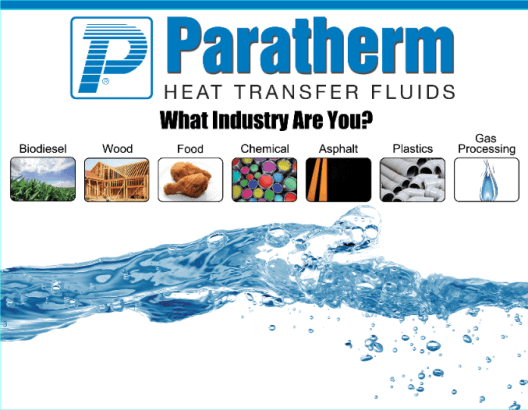The industrial applications of heat transfer fluids are diverse, ranging from simple, static design to advanced multi-loop systems performing numerous functions in a manufacturing operation. Since there are many variations in the design and utilization of processes where heat transfer fluids are utilized, the number of industries that use this technique is also large.
Every day, a myriad of applications and hundreds of thousands of people, particularly in the process industries, are benefited from these heat transfer fluids. So what precisely are the heat transfer fluids and what makes them work so well?
Heat Transfer Fluids
A heat transfer fluid refers to any fluid, whether liquid or gas, which is used for a process involving heating or cooling. As such, this includes steam and water, but this article focuses on engineered heat transfer fluids, which include products derived from synthetic- based or petroleum feedstock.
While analyzing the merits of engineered heat transfer fluids, it is imperative to know why they are superior to steam and water heat transfer as well as to direct heat application.
Paratherm | Heat Transfer Fluids | Hot-Oil Technology Made Easy
Benefits of Engineered Heat Transfer Fluids
The benefits of engineered heat transfer fluids are as follows:
Engineered Heat Transfer Fluids vs. Water/Steam
The freezing point of water is 32ºF, a drawback not found in the engineered heat transfer fluids. Also, the boiling point of water is 212° at sea level, thus
requiring stronger materials to handle the pressurized condition created above that point. Conversely, heat transfer fluids have no such limitations. Other drawbacks are the high safety concerns and high maintenance costs.
Engineered Heat Transfer Fluids vs. Direct Heat Application
Greater control, accuracy, and homogeneity can be achieved in the heating or cooling process using engineered heat transfer fluids.
Industrial Applications of Engineered Heat Transfer Fluids
Some of the industrial applications of the engineered heat transfer fluids (Figure 1) are listed in the following table:
| Industry |
Examples of Application |
| Food |
Meat & poultry further processing, snack foods |
| Chemicals |
Batch reactors, continuous processes |
| Plastics, rubbers, and composites |
Molding, blow molding, extrusion |
| Petrochemicals |
Catalysis, distillation, synthesis |
| Oil and gas |
Gas processing, refineries |
| Converting |
Presses, rolls, laminating, printing |
| Asphalt and concrete |
Concrete heating, hot-mix paving |
| Building materials |
Engineered woods, roofing materials |
| Die casting |
Die temperature control |
| Industrial laundry |
Flat work ironers, steam generators |

Figure 1. Engineered heat transfer fluids find use in a number of industrial applications

This information has been sourced, reviewed and adapted from materials provided by Paratherm.
For more information on this source, please visit Paratherm.